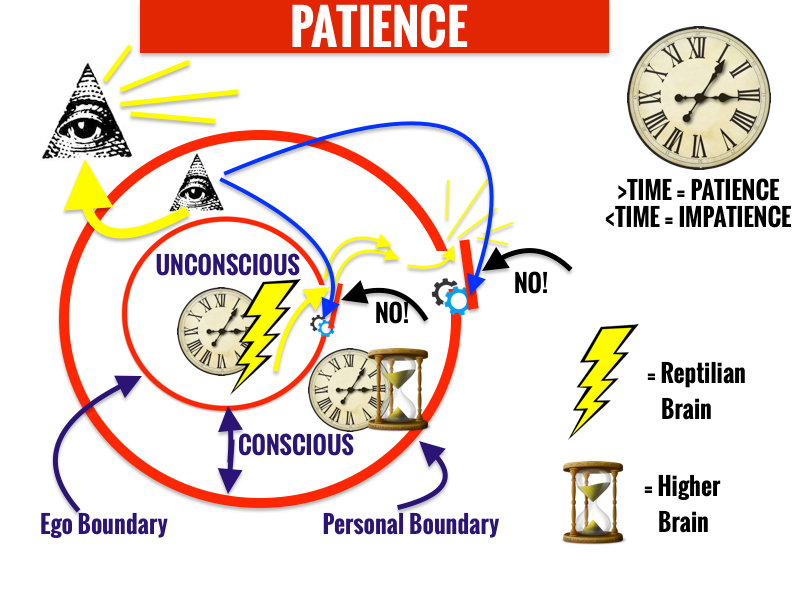We have said that patience may be a feature of the “inner boundary” we have been learning about - the “Ego Boundary” as I have called it - that which blocks or allows material from the unconscious instincts and drives to enter the conscious mind (whether or not having done that, your “outer boundary,” the Personal Boundary allows the impulse to be publicly expressed is a second matter.
This patience that blocks the impulsiveness of the instincts is widely recognized as an essential of adult life, is a major feature behind analyzing violations of the rights of others, and the law, of one’s culpability for doing wrong depending on age-appropriateness, and is also a part of what the Positive Psychologists such as Dan Goleman call, “emotional intelligence.”
It may be at times, courageous, allowing you to endure difficult circumstances (“The patience of Job”) or the ability to “hold your tongue” so as to respect the investments of the past, and not hurt the feelings of your significant other. Patience is a cited virtue in many of the world’s religions and is worth practicing at, through such exercises as easy as the classic, “time out.”


